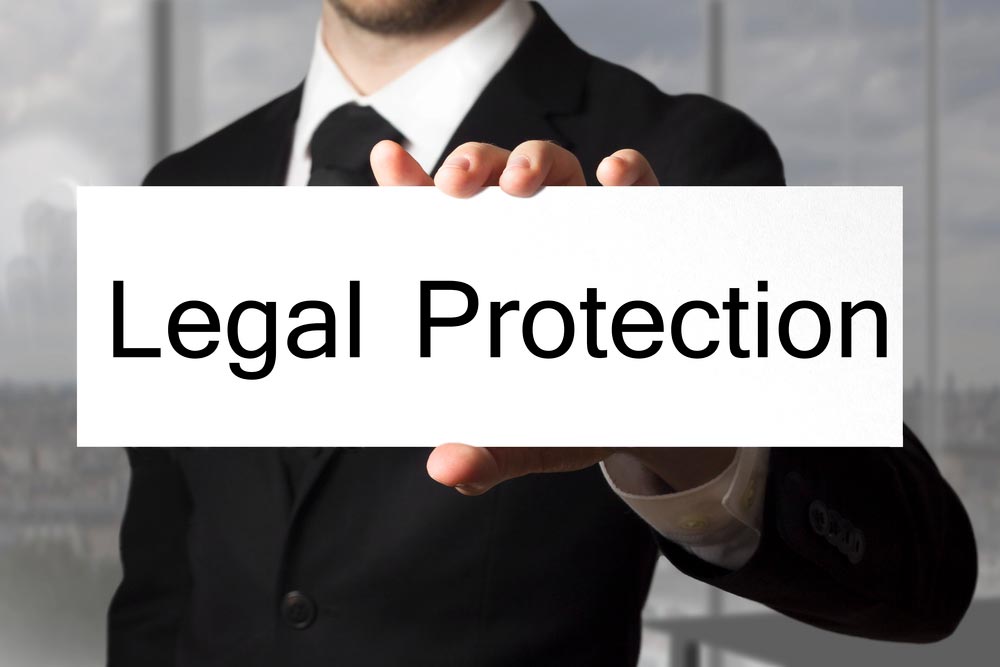Entrepreneurship is a journey filled with opportunities that can make you feel like you’re flying on top of the world, but it also comes with challenges that can keep you from getting off the ground. When you’re doing everything yourself or are leading a small team, making sure that your business has a strong foundation is an important piece of the proverbial puzzle. It will allow your business to take off and have long-term success.

Here are some things you can do to make sure your business is legally protected.
#1: Register Your Business
Proper registration will legitimize your business, and it’s often as simple as registering it with the appropriate government organizations. If you don’t go through this process, you won’t have any personal liability protection. You’ll also miss out on certain tax benefits. Choose a legal entity that aligns with your business goals, and you can decide on any of the following options:
- Limited Liability Company (LLC).
- S-Corporation.
- Partnership.
- Non-profit organization.
You want to make sure you file the necessary paperwork with state and local governments in the area you plan to operate.
#2: Get an Employer Identification Number (EIN)
Every individual has a social security number, so every business should have the same type of identification. This is called an Employer Identification Number (EIN), and you’ll need it to open a business banking account. You will also need it to file taxes and hire employees. You can apply for an EIN through the IRS, and it’s free.
#3: Get the Necessary Licenses and Permits
Most small businesses need a license to operate, but the one you need will depend on what type of business you’re in. It can also depend on where your business is located and what kind of regulations are in your area. You want to make sure you research local, state, and federal licenses that are relevant to your industry.
#4: Open a Business Bank Account
Opening a separate bank account will allow you to separate your business and personal finances. It will simplify bookkeeping and protect your personal assets from any liabilities associated with the business. It can also be helpful with tax reporting, because it will clearly identify your business income and expenses.
Opening a business bank account will make tracking your company’s cash flow and financial health easier, which is why you should use your EIN to open a dedicated business checking account. You should also think about getting a business credit card so you can establish a line of credit for your company.
#5: Have Contracts for Everything
Contracts will give your business a clear legal framework for every relationship or transaction. Having clearly drafted contracts will protect your business by outlining the expectations, responsibilities, and potential liabilities of each party. It will also minimize misunderstandings and potential business disputes that could lead to expensive legal issues.
Every small business needs a contract for its most important business relationships. This includes clients, vendors, employees, and contractors. Every business should have any of the following contracts:
- An operating agreement with a set of bylaws.
- A non-disclosure agreement (NDA).
- A confidentiality agreement/
- An independent contractor agreement.
- A service agreement.
- A sales agreement.
Be sure to speak to a qualified attorney for more information.
#6: Protect Your Intellectual Property
Your business’s intellectual property (including ideas, inventions, brand identity, and logo designs) is a valuable asset that needs to be protected. It makes business unique, which will set you apart from the competition. By protecting your intellectual property, you can keep others from copying your products or brand identity. It can also keep them from using your inventions or designs. You’ll be able to maintain your brand image and reputation, which can give your business a competitive advantage and maximize its potential value.
You should trademark your business name and logo. You should also copyright any original content. If it’s applicable, you should think about applying for patents. If you offer services that cross state lines, you should register your trademarks with the USPTO. You also want to register your copyrights through the U.S. Copyright Office.
If you want to find an attorney in Corpus Christi with a solid understanding of Texas corporate law, be sure to reach out to Gale Law Group. We have a team of people with years of combined experience, and they would be more than happy to speak with you about the specific legal needs of your business!
